Councils are full of unsung heroes, making a difference every day to residents' lives.
Councils are the force that help make every neighbourhood tick, and it wouldn't be possible without the over one million people working in local government, supporting communities to thrive.
Read about some of local government's unsung heroes below.
Unsung Heroes
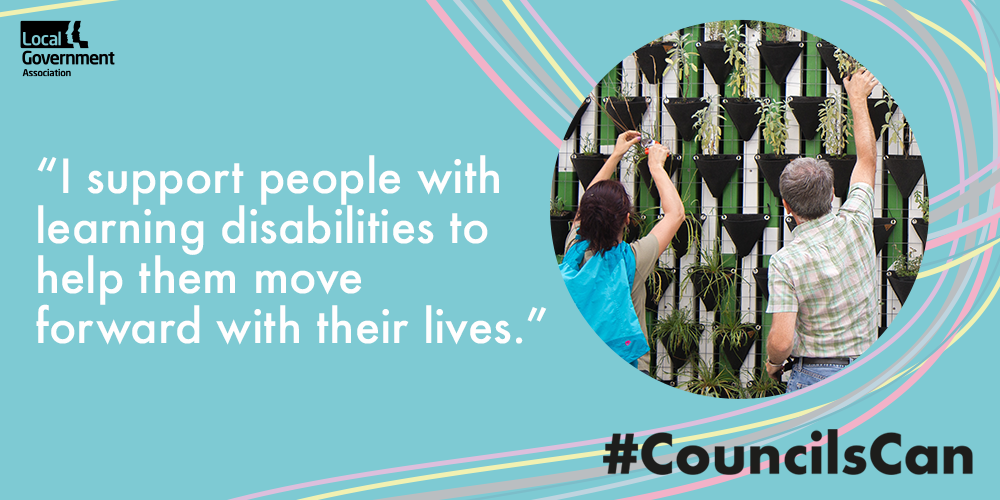
“I support people with learning disabilities move forward with their lives. I help them to find social activities, voluntary work, paid work and help them to access the support they actually need. I want to help them improve their lives and ensure they lead the most normal life they can. My role enables me to work with some really inspirational people.
“The most rewarding moment in my role came when I supported Swindon Borough Council at the Learning Disability Transition roadshow. One person with severe learning disabilities who we had been supporting came along and volunteered at the roadshow. At the end of the day when his father came to pick him up his father stood at the main reception looking at how his son was interacting and working with others. I went to talk to the father at the end of the day and with a tear in his eye he thanked me and said, “What Building Bridges has achieved for my son in the last year no other-provider has done in the last 10 years”. He could not believe the change in his son.”
“I don’t think the majority of people understand all of the additional services that are offered by the council and what they can do for people until they are needed by them.”
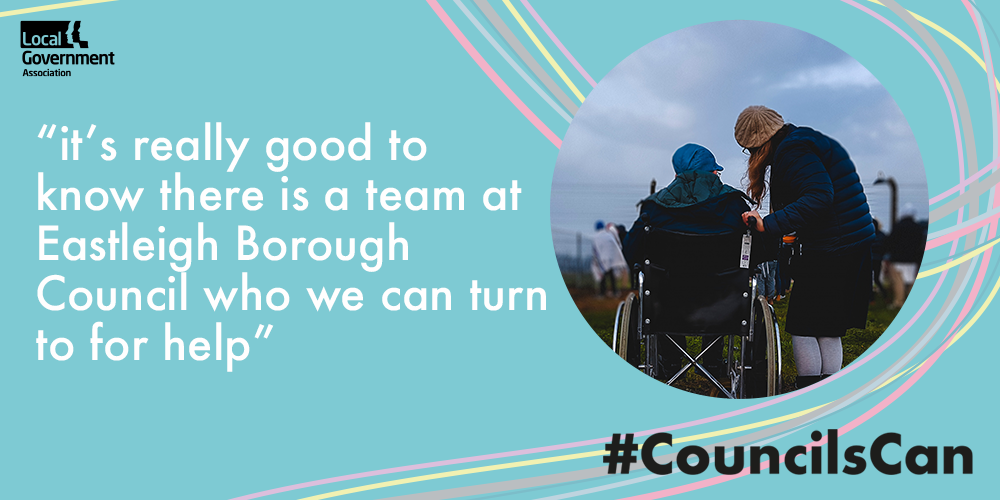
When Zach started falling over for no obvious reason and complaining of pains in his feet his mother simply put it down to growing pains, not for one moment could she have foreseen that within a couple of years her young son would be confined to a wheelchair.
Four years’ on and, despite having undergone countless tests and scans, 13-year-old Zach’s condition remains a mystery.
“It’s such a worry,” says Zach’s mum, Nicki. “He’s getting progressively worse but they [clinical teams] cannot pinpoint the cause. The hardest thing is watching Zach deteriorate but not being able to do anything about it and not knowing what to expect or to know how far his condition will worsen.”
Having no official diagnosis for Zach’s condition, Nicki was unaware she could access Eastleigh Borough Council’s Disabled Facilities Grant scheme. It was only through a conversation with Zach’s occupational therapist that Nicki was directed to the scheme.
“We didn’t know about the scheme,” says Nicki. “It was only Zach’s occupational therapist who mentioned it. She referred us and helped us to fill in the forms. We then were lucky enough to qualify for a home assessment from the team at Eastleigh Borough Council.
“It’s been an absolute lifeline for us.”
Home adaptations that have been carried out to date include the installation of entrance ramps and a stair-lift. Eastleigh Borough Council has also given the go-ahead to convert an upstairs bathroom into a wet room and is currently looking at ways to widen internals doorways to accommodate Zach’s wheelchair.
“These adaptations are helping Zach to maintain his independence which is really important for a teenage boy,” says Nicki. “He is dealing with so much, and coping so well, that it’s lovely for him to be able to have that independence at home.
“The stair-lift enables him to get upstairs without the support of others. He’s really excited about having a wet room as again it will give him so much more independence.”
Nicki adds: “As Zach’s illness is progressive his needs are constantly changing; it’s really good to know there is a team at Eastleigh Borough Council who we can turn to for help as we face these ongoing challenges. We have such gratitude to all involved for the support Zach has been given.”
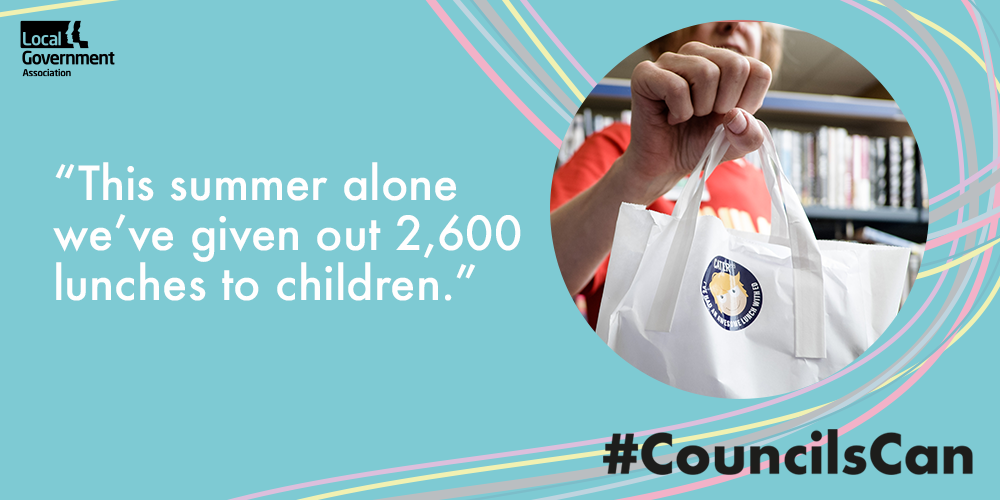
"My team supports frontline staff to deliver activities including Memory Cafés, Code Clubs and Bookstart and we arrange annual events including Lunch at the Library, Science Week and International Games Day among others. We run an outreach programme to make sure we get outside the library and into communities to reach those who may not know what’s on offer.
"We have found that ‘holiday hunger’ is a real problem in Plymouth and three years ago we developed ‘Lunch at the Library’ providing family friendly activities and a free lunch for children every Wednesday in August. This summer alone we’ve given out 2,600 lunches to children.
"Lunch at the Library is now a regular part of our summer and I’m proud of our staff for embracing it and making it such a success. The comments we receive show that it’s really needed and appreciated by those who attend.
"I think people probably know that councils provide a library service, but may be unaware of all the different things that libraries do now and the impact they can have on people’s lives."
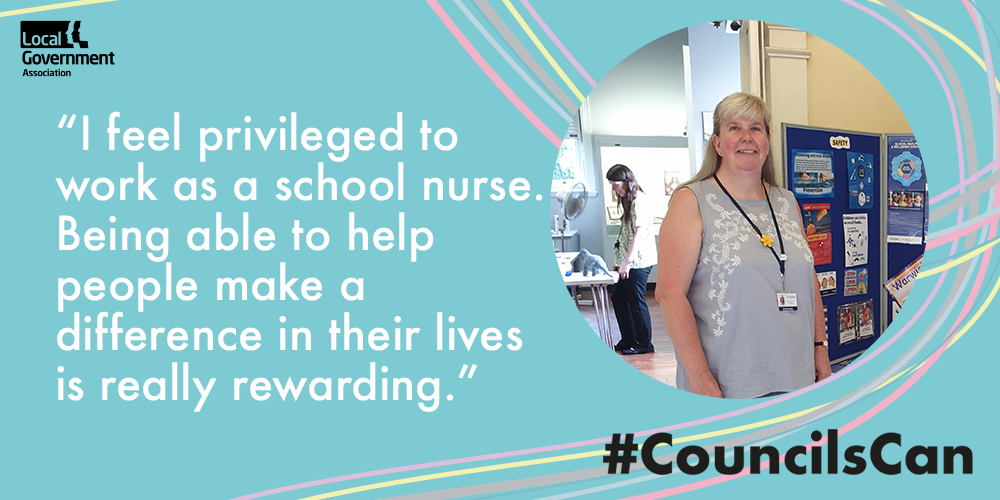
"My role involves carrying out assessments, planning care, delivering and evaluating school nursing interventions, and more generally helping to improve health and reduce health inequalities.
"I work closely with multi-agency services to help children, young people and their families in the community, drawing on available resources to support, advise and empower them to make better lifestyle choices.
"I feel privileged to work as a school nurse. Being able to help people make a difference in their lives is really rewarding. The best bit about my job is when I see families take on my advice and make real strides forward in improving their situation.
"I recently have worked with a 12 year old girl who was experiencing anxiety which was severely impacting her emotional health. I was able to work with her in school on a one-to-one basis and also worked with her mother (with the young person’s permission), to advise the mother on how best to support her daughter through the difficulties she was having. This intervention had a really positive outcome. The improvement in both the mother and her daughter was clear for everyone to see.
"The school nursing service is still quite hidden with professionals and the public not knowing what we do. We work very hard in trying to raise our profile in the community."
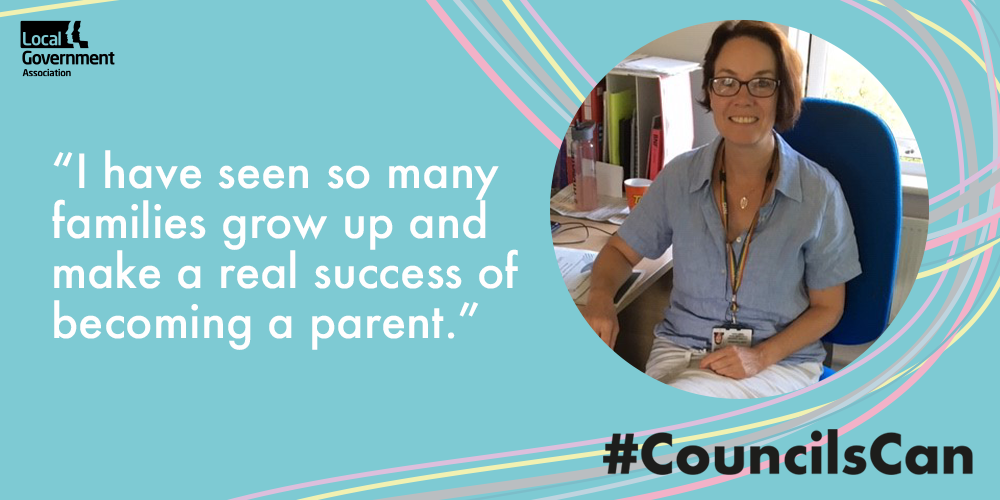
"I work as part of the ‘Healthy Futures Team’ which allows me to support young and sometimes vulnerable parents. I help them through the early stages of pregnancy and prepare them for birth and will often keep visiting families through the first years of the child’s life.
"As part of my role in supporting parents I often liaise with social care to ensure the family is safe and healthy, offer advice and guidance on what to do and what the family might need before the arrival of the child, and sign post them to helpful information and where to go to access ongoing support.
"It is important I gain parents’ trust from the offset and make sure I build a strong relationship with the families I am supporting. This is often a 24 hour job with parents I am supporting being in constant contact.
"As well as supporting young parents I often provide training to health visitors to explain how the teenage brain works. I often work with closely with social workers and contribute to Safeguarding Conferences. Our team are also planning to provide training on managing adult conflict in the near future.
"I often go on an emotional journey with the young families I support. I have seen so many families grow up and make a real success of becoming a parent. Today for example I visited a mum who moved to a council flat. She has had a lot of support over the years and there was a point where people didn’t think she could manage. Her child is now two years of age and is a really healthy toddler. Even though the mum is only 17 she has really got herself on her feet and things are looking up for her and her child. Stories like hers make it all worth it at the end of the day."
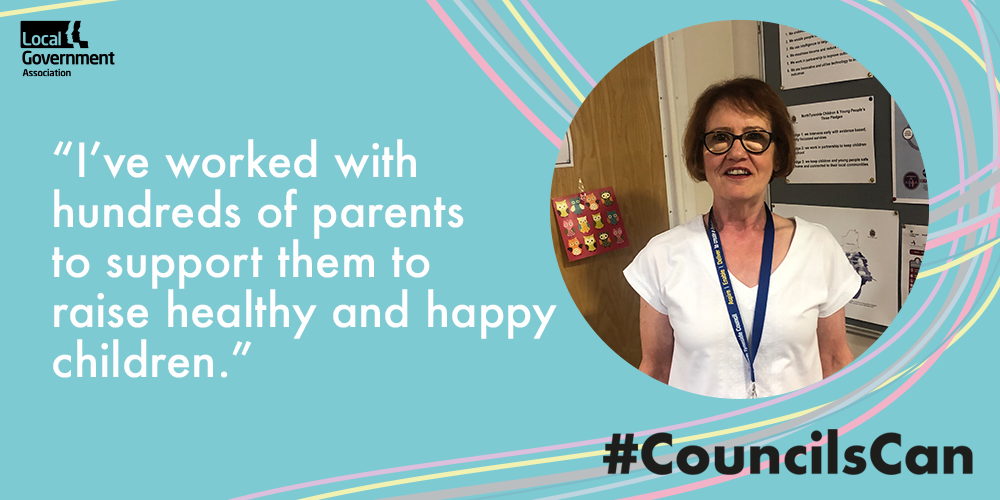
"During my six and a half years as a health visitor in North Tyneside, I’ve worked with hundreds of new parents and parents to support them to raise healthy and happy children. I’m part of a wider health visiting team delivering the healthy child programme, which supports and works with families until a child reaches the age of five. In the early years of life, physical and emotional health development are so important for laying down positive foundations for the future.
"The team I work with conducts home visits, holds clinics and developmental checks and talks to parents by telephone to make sure that children and their families have all the support they need to lead healthy lives. It’s a universal service offered to everyone who has a child, no matter their circumstances. From first contact, we want to make sure that parents feel supported when bringing a new baby into the world and that they have someone to provide practical information on a daily basis. Postnatal depression can be devastating. It is something we try to make all parents aware of and we offer support to parents who are suffering from it. I also give advice and tailored support and create action plans with parents to help with specific issues such as sleep problems, managing and understanding behaviours including temper tantrums and fussy eating. We’re one part of a host of early years support services that councils provide to support families in the community.
"It may be that many professionals, and the public, are unaware that until recently health visitors have worked within communities as part of the NHS. This role is now part of the public health function that local councils have responsibility for."
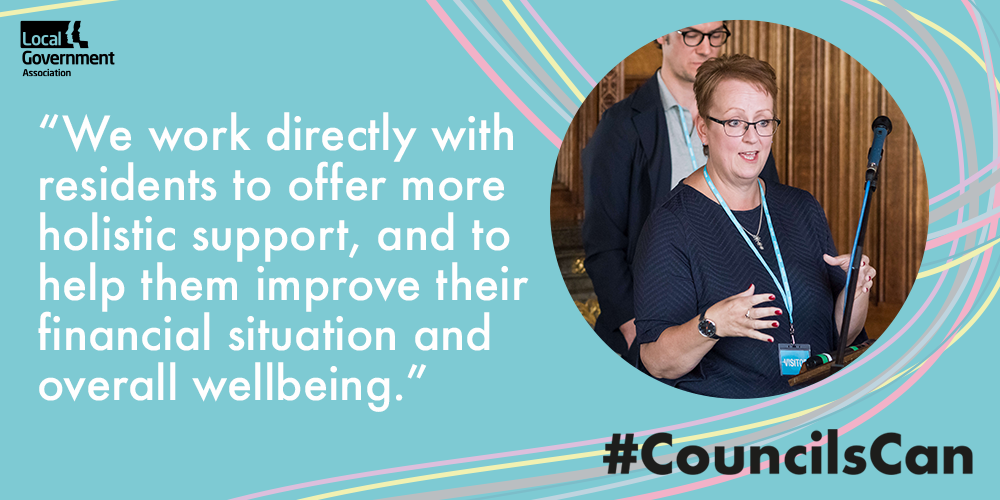
“I’m a Welfare Rights Officer outposted to a multidisciplinary team made up of myself and three other specialist caseworkers in debt, housing and employment. We work directly with residents to offer more holistic support, and to help them improve their financial situation and overall wellbeing. My role involves assisting residents to get their full entitlement to benefits. I help them navigate a complex benefits system by advising them, helping them to gather supporting evidence, filling in forms, and then if needed I’ll do reconsiderations and appeals and represent them at Tribunals. Some of what I do is also around managing residents’ expectations and increasing other professionals’ understanding about where claimants ‘fall’ within a constantly-shifting system.”
“In this team I’ve had opportunities to use my experience supporting residents to influence local and national policy and practice, including speaking at an event at the House of Lords last summer. I’ve been very lucky to have experiences like this, things I never thought I’d get to do during my working life. But being honest, my proudest moments have been in the last couple of weeks, when we’ve been back to interview to some of the residents we have helped about their experiences of working with us in this multidisciplinary and personalised way. Hearing their thoughts about how they were feeling both before and after our input has been very humbling.
“Some residents we support refer to ‘the council’ as being separate to us, or just as their housing provider. I don’t think that people living in private-rented accommodation were aware that they could access these services too – they’ve told us recently that they thought these services were for council tenants only. Others we’ve worked with have said that they didn’t realise the services were there ‘for someone like me’. Thankfully our council is committed to maintaining services like ours, which is quite something at a time when most local councils are cutting non-statutory services.”
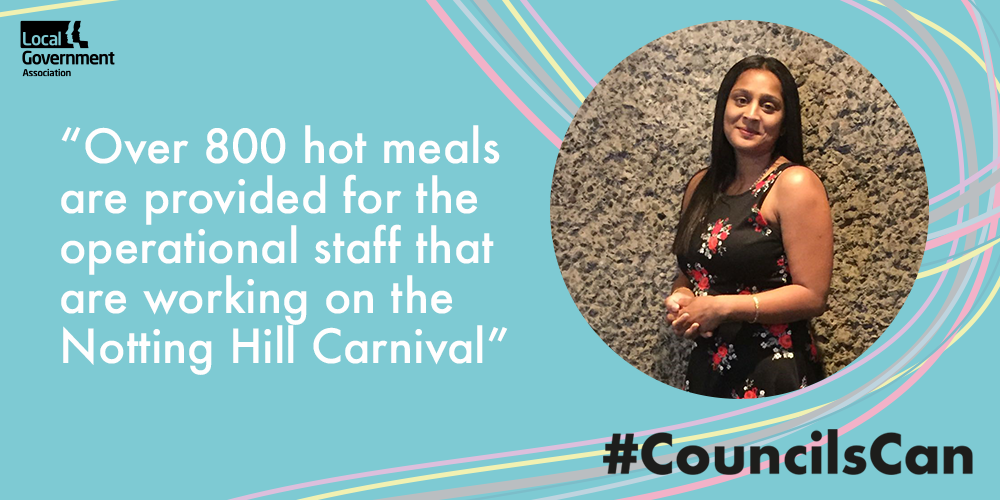
"I ensure the Bronze Building is set up correctly for multiagency use during the Notting Hill Carnival. We have a host of services using the building throughout the weekend including the police, London Fire Brigade, London Ambulance, St John’s Ambulance, and Westminster City Council. I also oversee the catering facilities – over 800 hot meals are provided for the operational staff that are working over the weekend. Ensuring that the right teams are fed at the right time, before they go out onto the footprint is crucial, as staff are out for up to 12 hours at a time. Keeping track of which officers have had their meals and which officers are delayed and still out on the footprint, can be a logistical nightmare, if the building support team are not on top of things.
"The officers that go onto the footprint work relentlessly to ensure that the carnival runs as smoothly as possible, allowing it to be safe and fun for everyone. When they come back from a 12-hour shift, I just want to ensure that they get a cup of tea when it’s cold, or cold refreshing water, when it hot. The little things make the difference.
"Over the last six years we have operated out of many different buildings, learning and improving the operations every time. My proudest moment has to be when the team turned a derelict building in as operational base within six weeks and used a local hair saloon studio as our communications room."
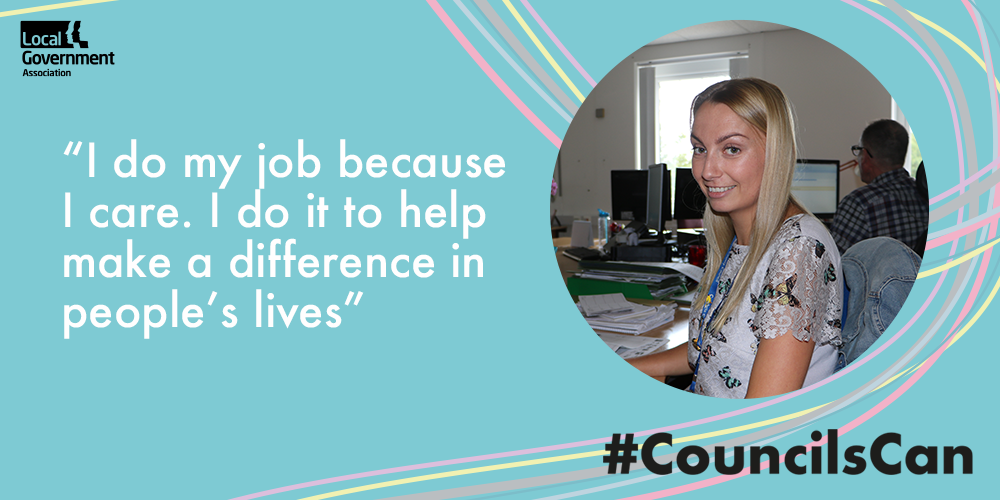
"My role as Housing Occupational Therapist means that I can focus on the person within their home environment, assessing what adaptations they require in order for them to remain safe and as independent as possible. This results in me being able to see and help people much quicker as housing is my priority. My role has contributed considerably to the reduction in time taken for a resident to receive a grant for an adaptation in their home. I also discuss with their family and carers the impact the difficulties has on the person and how to ensure that the adaptation is suitable for them as well.
"I have also been able to help and support people to move to more suitable accommodation. This has been achieved by working closely with the council’s housing options team but also the registered providers in the area. I have helped 22 people successfully be rehoused into more suitable accommodation. This has also helped save money on adapting properties. I am also currently supporting 20 people with rehousing.
“I recently supported a lady who was very unwell. When she was referred to me I called her family to arrange an appointment, only to have a distressed family member on the phone “at her wits end”. She told me about her mother’s health and how unwell she was. I believed, from the discussions that she needed urgent medical attention so I called the GP whom visited later that evening. The daughter told me that she had tried several times to get a GP to visit her mother, but they had refused. The GP who visited actually called for an ambulance.
“After she was then provided medical treatment and was discharged home, I visited the lady and her daughter. I assessed her as needing a stair lift, wet room and ramp to allow her safe access around her home. She was discharged home with carers and was also supported by her daughter.
"The adaptations have since been complete and she is managing well. I received a card, chocolates and wine from the lady and her daughter to thank me for what I did for them. I didn’t expect this as I was just doing my job. The card and gifts really touched me and showed me how much roles like mine are valued by residents.
“I do my job because I care. I do it to help make a difference in people’s lives and so they can live a safe, active and normal life.”
Highlighted pages
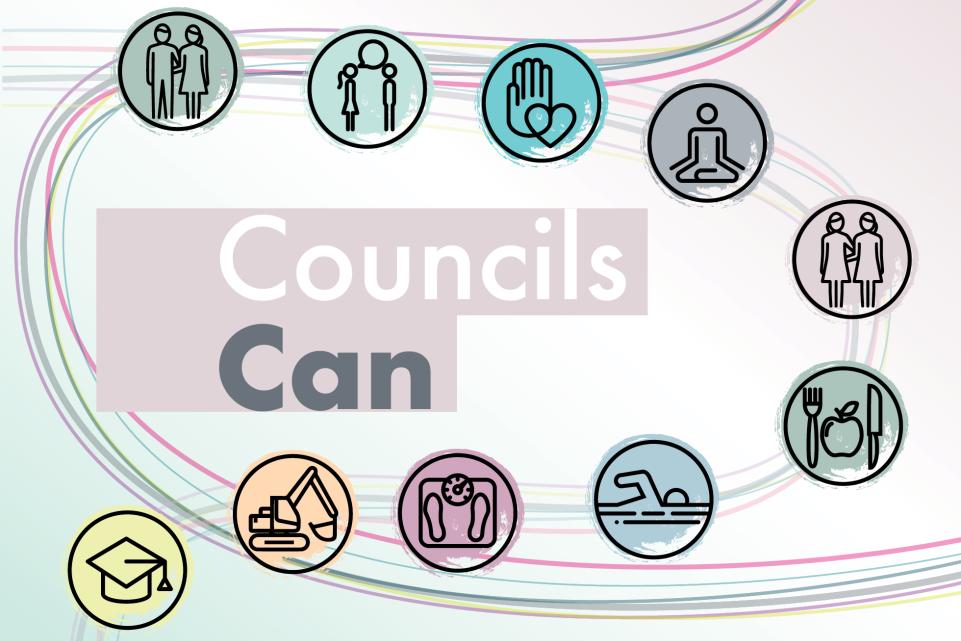
#CouncilsCan
With the right funding and powers, councils can continue to lead their local areas, improve residents’ lives, reduce demand for public services and save money for the taxpayer.
Voices from other sectors | #CouncilsCan
With the right powers and resources, councils can do so much more.
